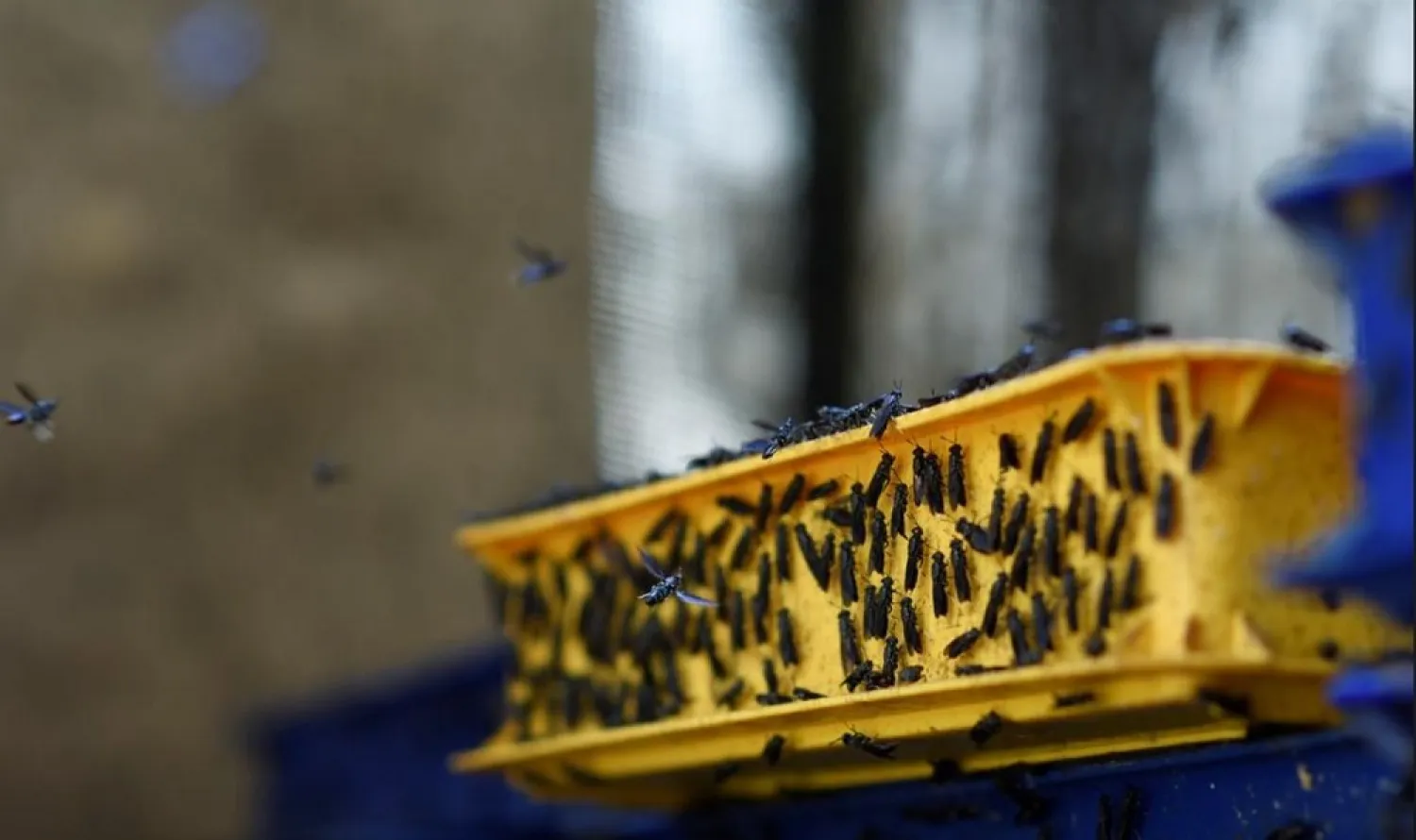In a quiet, mainly residential district of Singapore, trays of writhing black soldier fly larvae munch their way through hundreds of kilograms of food waste a day.
The protein-rich maggots can be sold for pet food or fertilizer, but at Insectta - a startup that says it is Singapore’s first urban insect farm - they are bred to extract biomaterials that can be used in pharmaceuticals and electronics.
“What these black soldier flies enable us to do is transform this food waste, which is a negative-value product, into a positive-value product,” said Chua Kai-Ning, Insectta’s co-founder and chief marketing officer.
Black soldier flies are renowned for their ability to consume any kind of food waste and their speed and efficiency at transforming that waste into body mass, Chua said. The hundreds of millions of larvae at the farm eat four times their body weight in food waste every day.
Working in conjunction with Singapore’s Agency for Science, Technology and Research, Insectta’s technology uses a proprietary and environmentally friendly process to extract lucrative substances such as chitosan, melanin and probiotics from the larvae, it said.
The substances, which are worth a few hundred dollars per gram, are sold to other companies.
Melanin conducts electricity and can be used in semiconductors, supercapacitors or batteries, while chitosan has anti-inflammatory properties and is useful in the manufacturing of cosmetics and pharmaceuticals.
“Traditionally melanin has never been extracted, other than from squid ink,” said Insectta co-founder and chief technology officer, Phua Jun Wei, adding that the production of chitosan usually requires large amounts of corrosive and environmentally damaging solvents.
With the global market valued at $7 billion and expected to grow sharply, Insectta said it was seeking to expand the industrial applications for its high-grade chitosan to wound healing, filaments for organic 3D-printing and drug delivery agents.









